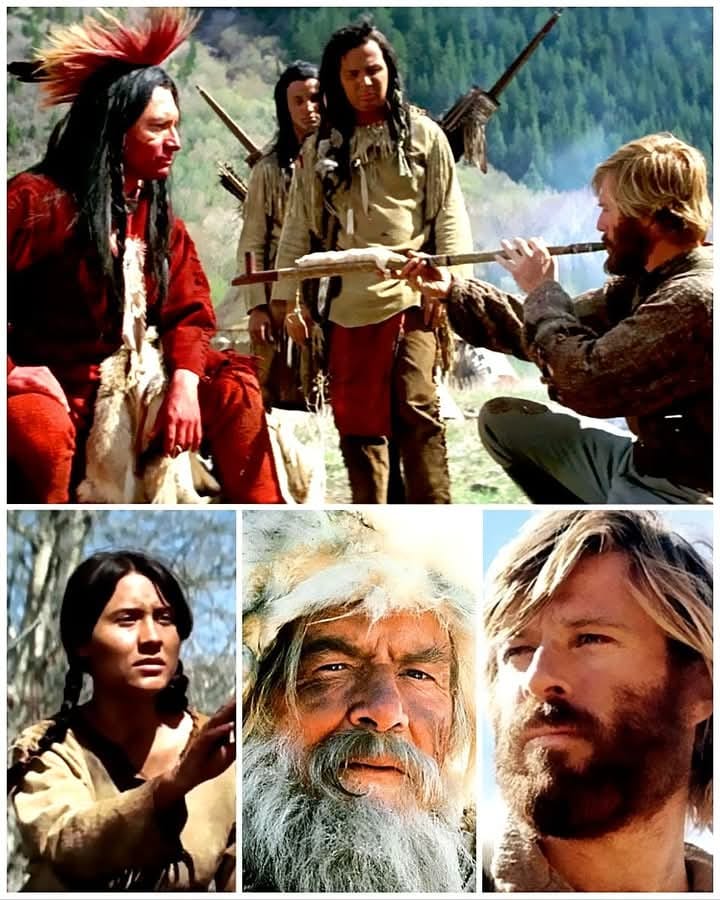One of the most unforgettable scenes in *Jeremiah Johnson* (1972) is when Robert Redford’s character discovers a frozen body clutching a gun, alongside a note that reads, “This is all the hell I got.” The stark, haunting image sets a tone of survival, isolation, and the harsh beauty of the American frontier. Filmed in the rugged wilderness of Utah, director Sydney Pollack and his team endured brutal weather to capture the raw authenticity of the landscape, lending the film a naturalistic feel that relied on real locations instead of studio sets.
The story follows Jeremiah Johnson, a former soldier who retreats into the Rocky Mountains seeking a life away from civilization. He learns the mountain man’s ways from Bear Claw Chris Lapp, an experienced frontiersman. As Johnson becomes more adept in the wild, he accidentally offends the Crow tribe by disturbing a sacred burial site, triggering a series of violent confrontations. The film traces his evolution from a naive wanderer to a tough survivor, exploring themes of solitude, vengeance, and mankind’s complex relationship with nature.


Robert Redford’s portrayal is marked by quiet resilience, using minimal dialogue and expressive gestures to tell Johnson’s story. Will Geer brings depth as Bear Claw, the gruff mentor who imparts vital survival skills. Delle Bolton plays Swan, a Flathead woman who becomes Johnson’s wife, and Josh Albee appears as Caleb, a mute boy Johnson rescues. These characters provide moments of emotional connection amid the prevailing solitude.
One of the film’s most gripping moments is the attack on Johnson’s cabin by Crow warriors, a brutal and desperate defense of his home. Another powerful sequence shows Johnson, nearly frozen, clawing his way out after an avalanche traps him beneath the snow. Cinematographer Duke Callaghan masterfully captures the stark, vast wilderness, highlighting both its peril and grandeur.
Shot mainly in Utah’s Ashley National Forest and Zion National Park, the production embraced the unpredictability of the natural environment—from biting cold to intense heat—which mirrored the protagonist’s struggles. Pollack and Redford sought to preserve realism by relying heavily on natural light and environmental conditions rather than artificial setups, giving the film its striking visual authenticity.
*Jeremiah Johnson* performed well at the box office for its era, grossing around \$44 million on a modest budget. Though it wasn’t an immediate blockbuster, it steadily built a loyal following, becoming a beloved classic among fans of Westerns and survival dramas. Redford’s star presence helped draw attention, but it was the film’s immersive storytelling and unique perspective on frontier life that ensured its enduring appeal.
The 1972 film remains a powerful and visually breathtaking exploration of survival in an unforgiving wilderness, depicting a man who embraces solitude yet discovers that living apart from society exacts a relentless, often brutal toll.

